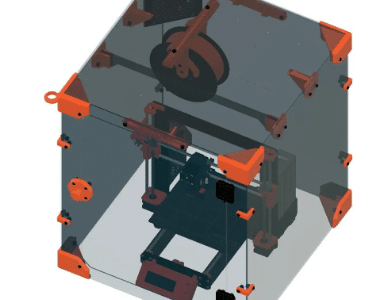
In an era marked by rapid technological advancements, the healthcare industry is not exempt from the wave of innovation. One such groundbreaking development is the emergence of virtual healthcare assistant, a game-changer in patient care and healthcare accessibility.
The demand for efficient, accessible, and patient-centric healthcare solutions has fueled the rise of virtual healthcare assistants. In this comprehensive exploration, we will delve into the multifaceted world of virtual healthcare assistant, exploring their functionalities, benefits, implementation challenges, real-world applications, and future trends.
READ: Embrace the RPM Revolution with Driven Software Development
Understanding Virtual Healthcare Assistants
What are Virtual Healthcare Assistant?
Virtual healthcare assistants are AI-driven applications designed to enhance patient engagement, streamline administrative tasks, and provide personalized health information. These digital companions leverage artificial intelligence to interact with users, offering a range of services from appointment scheduling to medication reminders.
How Do Virtual Healthcare Assistants Work?
These assistants utilize natural language processing and machine learning algorithms to understand and respond to user queries. They can analyze vast amounts of medical data to provide relevant information, making them valuable tools for both healthcare providers and patients.
The Benefits of Virtual Healthcare Assistant
1. Improved Accessibility
Virtual healthcare assistants bridge the gap between patients and healthcare services. With 24/7 availability, they ensure that users can access information and support whenever they need it, reducing the strain on traditional healthcare channels.
2. Enhanced Patient Engagement
These digital companions empower patients to take an active role in their healthcare journey. Through interactive features, users can monitor their health, track medications, and receive timely reminders, fostering a sense of control and responsibility.
3. Efficient Administrative Processes
Healthcare professionals can benefit from virtual assistants by automating routine administrative tasks. From appointment scheduling to managing medical records, these applications free up valuable time for healthcare providers to focus on delivering quality care.
4. Personalized Health Insights
Virtual healthcare assistants use data analytics to offer personalized health recommendations. By analyzing individual health records and lifestyle patterns, these tools can provide tailored advice, contributing to proactive healthcare management.

Implementing Virtual Healthcare Assistant in Practice
Overcoming Challenges
While the potential benefits are substantial, the implementation of virtual healthcare assistant is not without challenges. Ensuring data security, addressing ethical concerns, and integrating these technologies seamlessly into existing healthcare systems are critical considerations.
Realizing the Potential
As virtual healthcare assistants become more sophisticated, their potential applications continue to expand. From aiding in chronic disease management to supporting mental health initiatives, these digital companions are proving to be versatile assets in the modern healthcare landscape.
Future Trends and Innovations
1. Integration with Wearable Devices
The synergy between virtual healthcare assistants and wearable devices is set to redefine remote patient monitoring. By collecting real-time health data, these technologies enable a comprehensive approach to healthcare management.
2. Advancements in Conversational AI
As natural language processing continues to evolve, virtual healthcare assistants are becoming more adept at understanding and responding to complex medical queries. This trend enhances the user experience and expands the range of services these assistants can offer.
3. Expansion of Telehealth Services
The rise of virtual healthcare assistants aligns with the growing popularity of telehealth services. Together, they form a dynamic duo that provides patients with convenient and accessible healthcare options.
4. AI in Diagnostic Support
Virtual healthcare assistants are increasingly being integrated into diagnostic processes, offering preliminary assessments and aiding healthcare professionals in decision-making. This not only accelerates diagnosis but also contributes to more accurate and timely interventions.

Addressing Ethical Considerations
The integration of virtual healthcare assistants into patient care raises ethical concerns that must be carefully addressed. Issues such as data privacy, informed consent, and the potential for biased algorithms demand vigilant attention. Striking the right balance between technological advancement and ethical considerations is crucial for ensuring the responsible deployment of virtual healthcare assistants.
Ethical considerations encompass the need for transparency in how virtual assistants handle sensitive patient data. Healthcare providers must ensure that patients are well-informed about how their data is used, stored, and shared. Informed consent processes should be robust, and patients should have the option to control the level of information they share.
Moreover, addressing bias in algorithms is imperative to ensure equitable healthcare delivery. Developers must actively work to identify and rectify biases that may exist in the training data, preventing any form of discrimination in healthcare recommendations or treatment plans.
The Road Ahead: Regulatory Landscape
As virtual healthcare assistants become integral to healthcare delivery, regulatory frameworks must evolve to safeguard patient rights and ensure the responsible use of AI in healthcare. Policymakers, healthcare professionals, and technology developers need to collaborate to establish guidelines that foster innovation while upholding ethical standards and patient safety.
Regulatory bodies play a pivotal role in establishing guidelines that govern the use of virtual healthcare assistants. Clear and comprehensive regulations must address issues of data privacy, security, and the ethical deployment of AI in healthcare settings.
The development of international standards can further ensure that virtual healthcare assistants meet a uniform set of ethical and operational criteria. Collaborative efforts on a global scale can harmonize regulations, facilitating the responsible adoption of these technologies across borders.
READ: Geometry Dash – A Comprehensive Guide for Beginners
Challenges in Data Security
The reliance on vast amounts of sensitive healthcare data poses challenges in maintaining robust data security. Healthcare institutions must invest in advanced cybersecurity measures to protect patient information and prevent unauthorized access. The development of standardized protocols for data security will be paramount in establishing trust in virtual healthcare assistant technologies.
The Global Impact
The adoption of virtual healthcare assistants is not limited to developed nations. Emerging economies stand to benefit significantly from the scalability and cost-effectiveness of these technologies. The global impact of virtual healthcare assistants includes improved healthcare access, enhanced disease management, and the democratization of medical knowledge.
Conclusion
In conclusion, virtual healthcare assistants represent a pivotal advancement in healthcare technology, offering a myriad of benefits for both patients and healthcare providers. As we navigate the evolving landscape of digital health, these intelligent companions are poised to play a central role in shaping the future of healthcare delivery.
Embracing the potential of virtual healthcare assistant can lead to improved patient outcomes, increased efficiency, and a more accessible healthcare system overall. The journey has just begun, and the ongoing innovations in AI and healthcare technology suggest that the impact of virtual healthcare assistants will continue to deepen, ushering in a new era of patient-centered, technology-driven healthcare. With a commitment to ethical considerations, regulatory frameworks, and robust data security, the integration of virtual healthcare assistants can pave the way for a healthier and more connected world.



